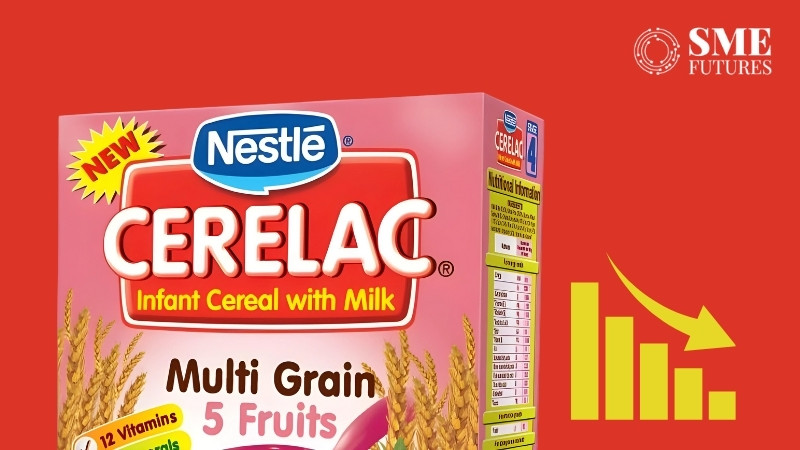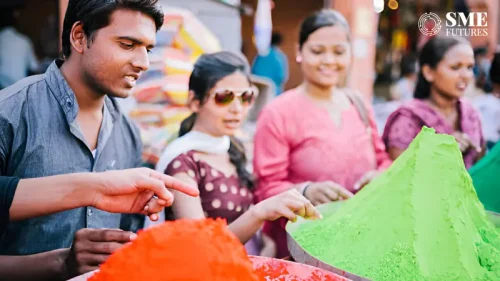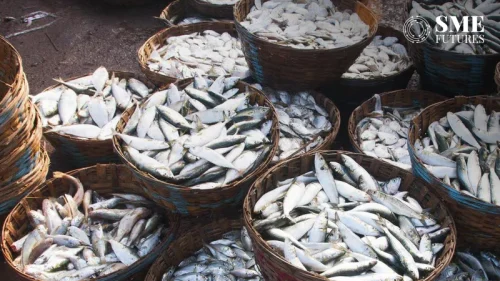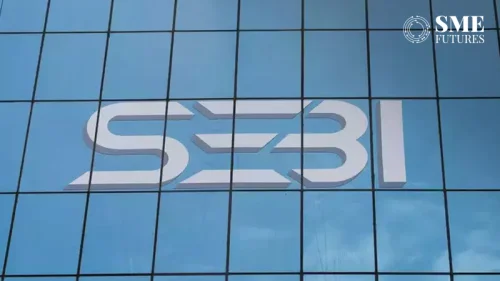The baby-food brands sold by global giant Nestle in India contain high levels of added sugar, unlike the same products in the UK, Germany Switzerland, and other developed nations, revealed an investigation by Swiss organisation Public Eye and the International Baby Food Action Network (IBFAN), sparking concern in the country at the violation of health guidelines.
The Indian government is reportedly looking into the issue of sugar being added to baby food. The National Commission for Protection of Child Rights (NCPCR) on Thursday asked the Food Safety and Standards Authority (FSSAI) to take a “comprehensive review” of the sugar content in Nestle’s baby food products.
“In light of these concerns it is requested that FSSAI undertake a comprehensive review of the sugar content in baby food products manufactured and marketed by Nestle and other companies,” said NCPCR Chief Priyank Kanoongo, in the letter to the food regulator, seen by IANS.
The Commission said it has “taken cognisance” of the report and that the added sugar content could potentially harm the health of infants and young children.
“Given the vulnerability of this population group and their unique nutritional needs, it is imperative that baby food meets strict standards for nutritional quality and safety,” said the letter addressed to FSSAI Chief G. Kamala Vardhan Rao.
The Commission has asked FSSAI to “inquire and furnish information within 7 days”.
Meanwhile, Nestle has said that it has reduced added sugars by up to 30 per cent in the past five years and that it never compromises on the nutritional quality of its products.
Reacting to the news, the share price of Nestle India Ltd went down in the bourses on Thursday following the study.
At the BSE, on Thursday, Nestle India’s shares opened at Rs 2,539 (Wednesday closing price Rs 2,547.15) and went down to close at Rs 2,462.75.
Findings showed that in India, all Cerelac baby products contain an average of nearly 3 grams of sugar per serving. The same product is being sold with no added sugar in Germany and the UK, while in Ethiopia and Thailand, it contains nearly 6 grams, the study said.
The report said that Nestle adds sugar to infant milk and cereal products in several countries which is a violation of international guidelines aimed at preventing obesity and chronic diseases. Violations were found only in Asian, African, and Latin American countries.
However, a Nestle India Ltd spokesperson said the company has reduced the total amount of added sugars in its infant cereals portfolio by 30 per cent over the past five years and it continues to “review” and “reformulate” products to reduce them further. “We believe in the nutritional quality of our products for early childhood and prioritise using high-quality ingredients.”
On Wednesday, the leading UK paper The Guardian reported that the Swiss food giant adds sugar and honey to infant milk and cereal products sold in “poorer countries”. It cited data from Public Eye and IBFAN that examined Nestle baby food brands sold in these markets. Public Eye examined 115 products sold in Nestle’s main markets in Africa, Asia and Latin America across two key brands — Cerelac and Nodi.
“Almost all the Cerelac infant cereals examined contain added sugar — nearly 4 grams per serving on average, equal to roughly a sugar cube — although they are targeted at babies from six months of age. The highest amount — 7.3 grams per serving — was detected in a product sold in the Philippines,” the report said.
WHO expert Nigel Rollins was cited in media reports as saying that “this is a double standard that cannot be justified.”











